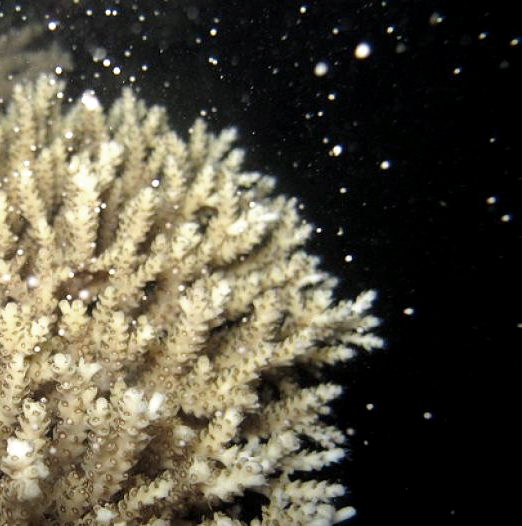Spawning seen on damaged Reef
 While record levels of coral bleaching continue, this year’s Great Barrier Reef spawning season has gone fairly well.
While record levels of coral bleaching continue, this year’s Great Barrier Reef spawning season has gone fairly well.
Scientists trained an array of sensors and cameras on the Reef for four days last week to catch the annual coral spawning season.
Spawning in waters of southern reefs went as normal, scientists say, but coral colonies gave up fewer eggs further north.
“Orpheus Island wasn't very badly affected and so it would appear that predictably the spawning went as per usual,” Professor Andrew Baird from the ARC Centre of Excellence for Coral Reef Studies told the ABC.
But Professor Baird said further north his colleagues struggled to find colonies with eggs.
Bleaching has affected over 35 per cent of coral in central and northern parts of the Reef.
“It does look like certainly the number of colonies breeding is less than normal,” Dr Baird said.
“The main effect is that there's just not many corals left.
“Eighty to 90 per cent of the corals in the shallows at Lizard Island were killed by the bleaching so there's just a lot fewer corals.
“There's potentially effects on the number of surviving colonies breeding and also potential effects on the number of eggs that the individuals produce and maybe egg quality.”








 Print
Print